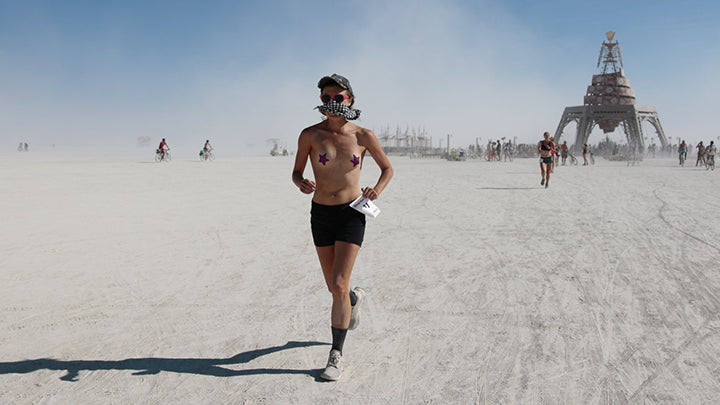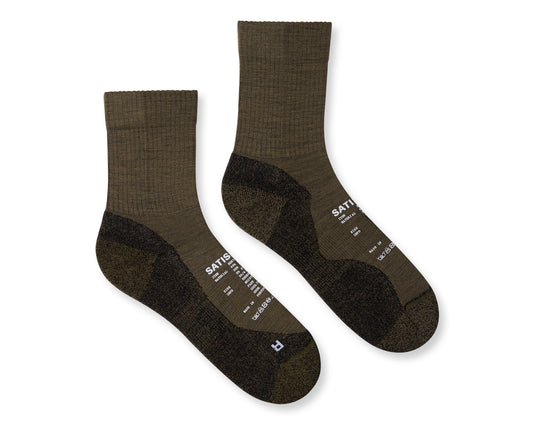
Runner, not only

We caught up with our friend Gracie Bialecki to talk about her new novel, getting high and her multidisciplinary approach to sublimation.
Can you give us a short bio?
I’m an author, performance poet, and runner who moved to Paris over two years ago. Before that, I spent five years in Brooklyn, where I ran with North Brooklyn Runners, started writing my novel, and acted as assistant to Michael Seidenberg. He was a famous bookseller who ran Brazenhead Books, a speakeasy and salon, out of his Upper East Side apartment.
I moved to Paris to focus on artistic pursuits, which has meant finishing my first novel and getting well into my second. I also founded Thirst, a storytelling series with my friend and frequent collaborator, Alex Brook Lynn, who I met at Brazenhead. Besides Thirst, we’ve also started making video-poems together. Most of my projects deal with self-actualization and resilience.
Why do you run?
I run to free my mind and body, and to see where my feet take me.
 I just finished reading the novel you recently published, Purple Gold, which was truly wonderful. At one moment, Alana (the protagonist) reflects: “Without the hunt for weed, there was even less to do in Ojai.” Oftentimes in the text, getting high, or the pursuit of getting high, seems to serve as a reprieve or an escape. In this light, can you tell us, as a proud stoner, how this notion of being/getting stoned differs and relates to “the High” you get from running?
I just finished reading the novel you recently published, Purple Gold, which was truly wonderful. At one moment, Alana (the protagonist) reflects: “Without the hunt for weed, there was even less to do in Ojai.” Oftentimes in the text, getting high, or the pursuit of getting high, seems to serve as a reprieve or an escape. In this light, can you tell us, as a proud stoner, how this notion of being/getting stoned differs and relates to “the High” you get from running?
Well, maybe ”proud former stoner” would be a more apt description, since I have to admit I’m half the pothead I was when I started writing Purple Gold.
So answering from my former stoner perspective, I’d say getting high was a way to experience the world differently—to give it a magic tinge, an upgrade from black and white to technicolor. In the beginning of the novel, this is certainly why Alana pursues that high, though in the course of her journey the meaning of smoking changes.
To me, “The High” from running is more ephemeral and internal than the pursuit of a drug high. It’s not like lighting up a joint and knowing you’ll get stoned—every run has different moments of difficulty, joy, and ease. This makes “The High” unexpected and inspiring, rather than the manufactured, repetitive high of smoking weed.
The narrative form in the novel addresses a “you” throughout, which functions almost as Alana’s alienated inner monologue. While the novel never purports to be autobiographical, I was curious to what extent Alana is a representation of you?
I wrote the novel over the course of five years, partially because I was working full-time when I started, partially because the story kept developing, especially Alana’s character. There are certainly aspects of her personality—namely her teenager stoner dreams—that are similar to mine. But I’ve always been more interested in creating rather than transferring my life directly onto the page.
 Furthermore, does this disembodied “you” possess you when you run? When the miles are difficult, do you have an inner-monologue that addresses “you”?
Furthermore, does this disembodied “you” possess you when you run? When the miles are difficult, do you have an inner-monologue that addresses “you”?
Originally the novel was in the third person, and I decided to rewrite it in the second person using “you.” At the time, I was writing and journaling a lot in that voice, and found it flowed more naturally.
So yes, at times I do feel possessed by a disembodied you. Mostly, I see it as a form of support—a stronger part of myself comforting one in need. “You got this,” is my go-to encouragement during running work-outs, and subconsciously, I’m probably saying for myself as much as I am for my training partner.
You participate in writing groups and workshops, and I know you also like to run with people (I loved our run in the Bois de Vincennes). In what ways do writing and running transform for you when you do them with others?
It’s easy to make writing and running solitary activities, and I do think it’s necessary to have an individual practice to be serious about either of them. That said, community pushes us to new boundaries, be them physical or creative, and seeing what others are achieving is one of the best forms of encouragement. I never would’ve started running half or full marathons if it hadn’t been for my training partners. Similarly, at Brazenhead Books, I became close with all types of artists, journalists, and authors, which got to me thinking—maybe I could do that too.
Community also brings positivity and happiness. I know there will always be hard runs and rough writing days, but why am I dedicating myself to something if there aren’t also moments of joy? I feel those most when I’m surrounded by others.

How do the energy you invest in running and the energy you invest in writing inform each other?
I approach both running and writing in similarly structured ways, and have felt the self-discipline carry over. When I was training for my first full marathon (Saint Tropez in 2019) I had a spreadsheet of all our work-outs, and now with my second novel, I have a similar document of what I’m writing each week, which adds up to larger deadlines. I’m grateful that two of my favorite things are so synergistic, and love the feeling of sitting down to write after having gone for a morning run.
Lastly, both writing and running have proven to me that our minds hold us back, and all we have to do to achieve our dreams is see past those limitations and believe in ourselves.
For more of Gracie’s writing or to read Purple Gold, visit www.graciebialecki.com.






